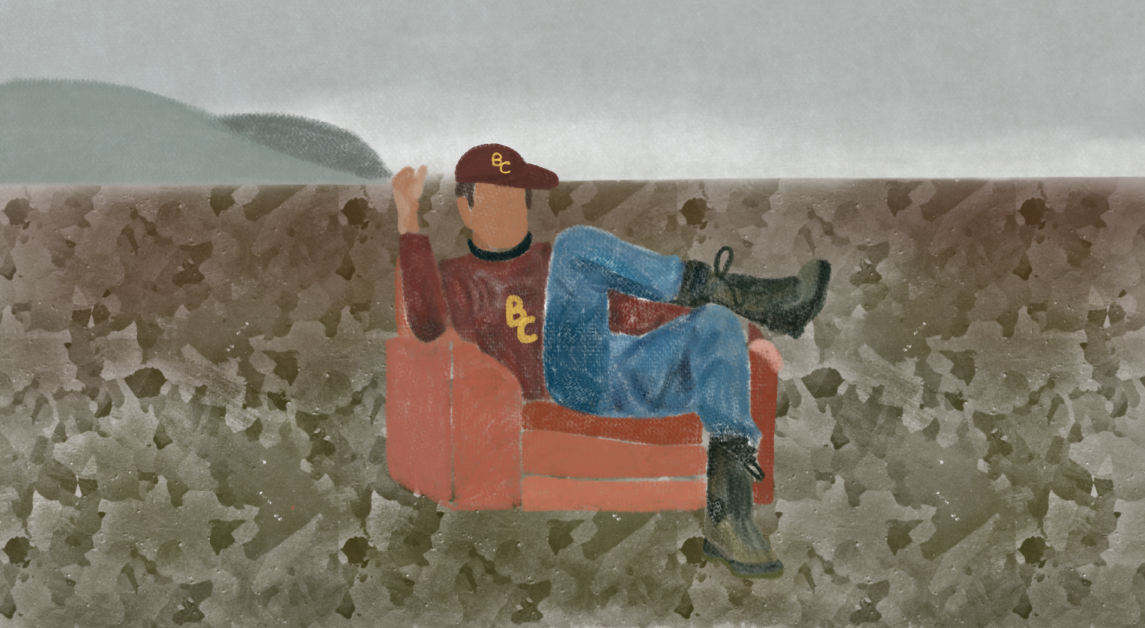“Like I said before, your body is not a temple, it’s an amusement park. Enjoy the ride.” — Anthony Bourdain
I will proudly boast that one of the best habits I adopted over the past year is decentralizing social media from my day—specifically, deleting TikTok and setting strict time limits on other apps. My head feels clearer, my to-do list takes priority, and instead of mindless content consumption, I fill my evenings with journaling, working out, and spending time with friends.
But over the past couple of weeks, I’ve slipped back into old habits and redownloaded social media. I’ve noticed myself spending countless unproductive hours at the mercy of my phone. This mindless time on my couch and in my bedroom has left me feeling drained and unmotivated.
I’m not one to say, however, that social media can’t open doors to wonderful things—most recently, it rekindled my love for a star I grew up watching on CNN.
The original rockstar of the culinary world was the son of professional creatives. With a father who worked as a classical music recording industry executive and a mother who held the esteemed job of a New York Times editor, it’s no surprise that Anthony Bourdain led a wildly fascinating life. A brief two-year stint at Vassar College and work at a restaurant in Provincetown, Mass., pushed Bourdain to attend the Culinary Institute of America.
Though I am in dire need of recipe inspiration from Bourdain—evidenced by the weekly rotation of Trader Joe’s frozen meals I consume—there is more to him than simply being an icon in the kitchen.
For fifteen years, Bourdain hosted the travel show Parts Unknown on CNN. He traveled to 80 countries, and filmed over 100 episodes, each exploring a gift unique to culture, region, and group—the cuisine. In each episode, Bourdain took part in spontaneous, off-the-cuff activities, demonstrating his natural affinity for saying “yes” to the unexpected.
Sparing some expletives, Bourdain’s original pitch for the show went something like, “I travel, eat random things, and basically do whatever I want.” This nonchalant attitude struck a chord, and Bourdain became beloved as a radical figure. People loved his unapologetic attitude and no-frills, yet deeply meaningful, approach to travel.
Throughout the series and his long career in the public eye, Bourdain was an advocate for seeking movement—physical, mental, cultural. This didn’t have to be grand or take place on another continent. As he put it, “The extent to which you can walk in someone else’s shoes … It’s a plus for everyone.”
Amid my recent multi-week social media binge, I found myself seeing constant videos of Bourdain, many with the sound of his voice emphasizing the vitality of opening your mind and getting off the couch.
I took this literally over Easter break. With outlandish amounts of time on my hands after deciding to stay in Boston instead of heading home to Wisconsin, I decided to ditch the couch and lean into spontaneity. So instead of staying planted on my couch, I tried a new coffee shop, took the T to an unknown place, hit a different grocery store, and played music I’d never heard before—you name it, I tried it.
This slight shift I made over the long weekend continued into the following week on campus—new routes to class, different study spots, a unique latte order, and running on the second floor of the Plex instead of the fourth. All of it left me feeling energized.
I’ve always been a proponent of keeping myself on my toes. Spontaneity, in every form, brings me insurmountable amounts of joy. And over the past weeks, I’ve been surprised by the random faces and moments of thrill I have encountered.
Many believe their bodies, routines, and to-do lists are temples. To this, I say: shake things up. Let yourself have days that feel like an amusement park. Bourdain’s wealth of knowledge reminds me how little I truly know. Each day can be distinct—I have places I’ve yet to see and things I still need to learn. I’m simply trying to “enjoy the ride.”[/vc_column_text][/vc_column][/vc_row]













